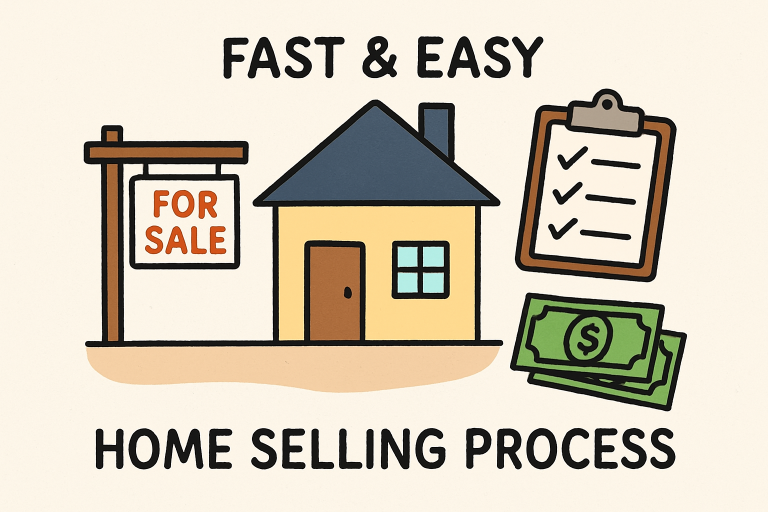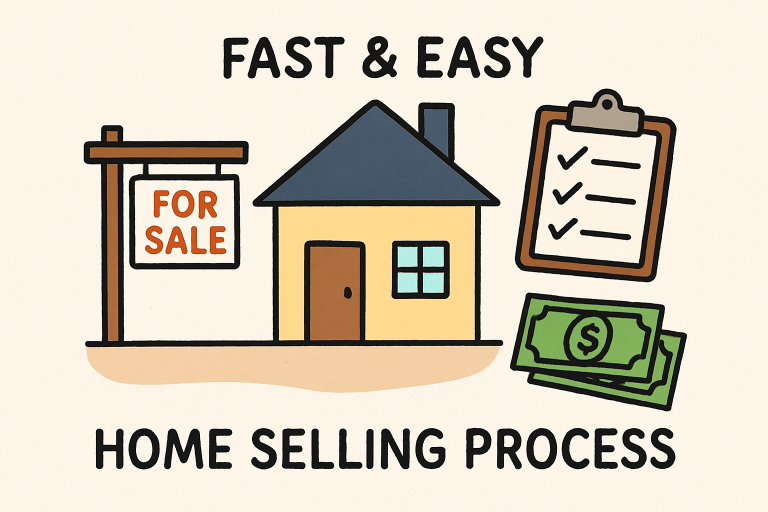In real estate, selling a property “as-is” means you offer your house in its current condition, with no obligation to make repairs or upgrades before the sale. This approach can appeal to sellers who lack the time, resources, or desire to take on renovations. However, “as-is” does not mean buyers expect a catastrophe—they expect transparency about the home’s state, even if it’s less than picture-perfect.
Many sellers wrongly believe “as-is” sales mean they can skip all disclosures or that no buyer will consider a home with flaws. In truth, a broad range of buyers—including first-timers, renovators, and especially cash investors—routinely purchase as-is properties. For sellers seeking fast cash, targeting these buyers can dramatically improve speed and certainty. By clearly presenting the home’s current condition, sellers can build trust and attract serious buyers who are prepared to move forward quickly. This balance of honesty and convenience often makes as-is sales a smart strategy for those needing both efficiency and flexibility.
Why Sellers Choose a Quick Close
Life circumstances can make a speedy sale not just desirable, but essential. Sudden job relocations, the need to settle an estate quickly, or looming financial obligations all create pressures to close fast. Selling rapidly can also reduce stress, minimize holding costs, and let sellers move on to their next chapter sooner.
The benefits extend beyond just time saved—including avoiding extended showings, repairs, and the uncertainty that a traditional listing can bring. For example, one homeowner inherited a fixer-upper but lived in another state; prioritizing speed over maximizing profit allowed them to resolve the estate and avoid months of travel and upkeep.
Homeowners wanting a quick close often appreciate that the trade-off for convenience might mean a slightly lower sale price but comes with significant gains in peace of mind and flexibility. Quick transactions also allow sellers to align the sale with personal timelines, such as starting a new job or relocating a family. In many cases, the certainty of a guaranteed close outweighs the potential for a marginally higher but uncertain offer.

Steps to Prepare Your Home for a Fast Sale
- Assess what’s truly necessary: Focus on decluttering, deep cleaning, and handling minor cosmetic fixes. Expensive renovations rarely yield a return in an as-is sale, but tidiness and transparency make a difference.
- Gather essential documents: Organize property records, previous inspection reports, relevant permits, and mandatory disclosures. This streamlines the closing and demonstrates honesty.
- How to price your home for a quick outcome: Review recent sales of comparable properties in similar condition. A competitive price attracts attention and encourages multiple solid offers.
The Role of Cash Buyers and Investors
Cash buyers are typically individuals or companies with funds on hand, ready to buy homes quickly. They often streamline the process by skipping traditional financing and appraisal contingencies. These buyers, alongside real estate investors, frequently purchase properties in any condition, understanding the costs and work required to bring them up to market standard. Recent data shows that the share of all-cash buyers has reached its highest level since 2014, making up 32% of all buyers, according to the National Association of Realtors.
The difference between traditional buyers and investment buyers comes down to speed and flexibility. Traditional buyers often rely on mortgage approval, which can delay closings by weeks. Investors using cash, in contrast, can close in as little as 7-14 days, reducing the risk of deals falling through due to financing issues.
Comparing Your Selling Options
- Traditional sales: Offer the potential for higher profits but involve more time, agent commissions, repairs, and uncertainty.
- Cash buyers: Prioritize speed and convenience but typically offer slightly less than full market value in exchange for quick closing and no repairs.
- iBuyer platforms: Use technology to deliver competitive cash offers and transparency and set closing dates. However, not all areas have robust iBuyer presence, and service fees may apply.
- What to look for: Seek established investors or companies with positive reviews, transparent communication, and fair purchase agreements.
- Common timelines: Traditional sales may close in 30-60 days, while cash buyers and iBuyers can complete a sale in as little as 7-21 days.
Legal Considerations and Protecting Yourself
Even with an “as-is” sale, sellers are required by state law to disclose known material defects impacting the home’s safety or value. Failing to do so might lead to legal ramifications later. Always review all offers carefully, verify proof of funds, and ensure all contracts are clear on closing dates, contingencies, and existing liens. Working with a real estate attorney or a trusted local expert can further minimize risks.
Tips to Avoid Common Pitfalls
- Recognize red flags: Be wary of pushy buyers, vague contracts, or offers with hidden fees.
- Key questions: Ask about the buyer’s experience, proof of funds, and closing flexibility before signing anything.
- Lessons learned: Some sellers, in their rush, overlooked crucial contract terms or failed to verify the buyer’s credentials, leading to last-minute deal failures or unexpected fees. Always review details and never feel pressured into a commitment.
Conclusion: Making Speed Work for You
- To sell your house quickly, assess your priorities and weigh the trade-offs between speed, price, and convenience.
- Prepare documents, set a fair price, and research buyers and companies before accepting offers.
- Protect your interests by requiring transparency, reviewing contracts, and seeking professional support as needed.
- With the proper preparation and knowledge, you can achieve a fast, secure house sale that matches your timeline and goals.




